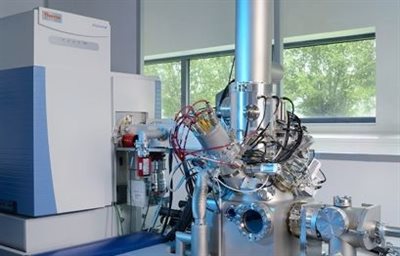
RniTrapTM technology
The first paper from the 3D OrbiSIMS (a new molecular imaging technology) was
published this week in Nature Methods illustrating label free biomedical chemical imaging. The work was led by Led by Prof Ian Gilmore of the National Physical Laboratory (NPL) who holds a visiting Professorship in the School of Pharmacy at the University of Nottingham. NPL and GlaxoSmithKline (GSK) partnered to fund the build of this instrument to help
locate drugs at sub-cellular resolution bringing together the instrument manufacturers
IONTOF and
Thermo Fisher to hyphenate the surface and 3D mass spectrometry power of the Time of Flight Secondary Ion Mass Spectrometry (ToF SIMS) instrument and the OrbiTrapTM technology from Thermo Fisher. The paper illustrates this step change in analytical capability imaging the distribution of neurotransmitters—gamma-aminobutyric acid, dopamine and serotonin—with high spectroscopic confidence in the mouse hippocampus. Single-cell metabolomic profiling was demonstrated using rat alveolar macrophage cells incubated with different concentrations of drug that upregulate phospholipid species. The OrbiSIMS heralds an exciting new development in mass spectrometry imaging, breaking previous resolution barriers (spatial and mass) that have to date prohibited the further advancement of cutting edge biomedical chemical imaging. The University of Nottingham therefore looks forward to continuing our strong partnership with NPL, GSK and IONTOF as this technique breaks new ground.
Posted on Thursday 16th November 2017